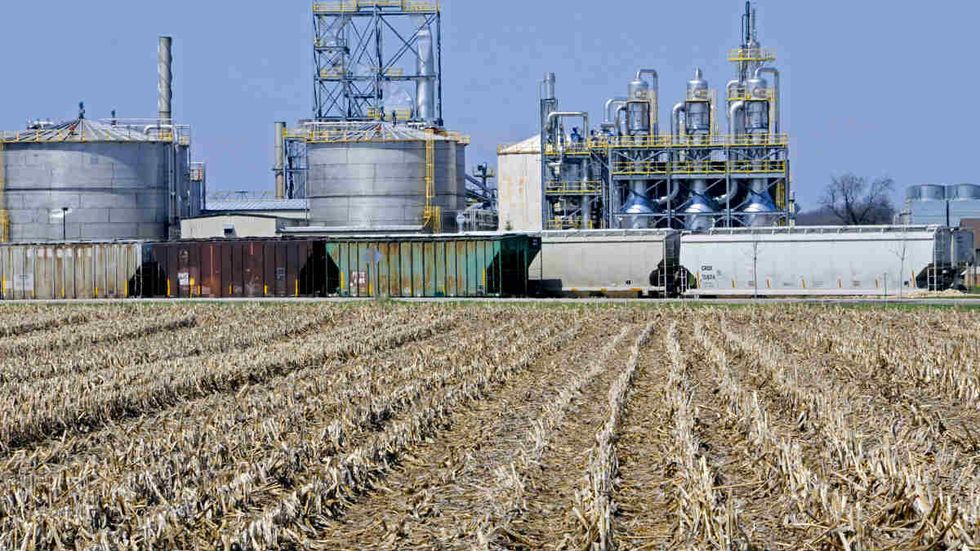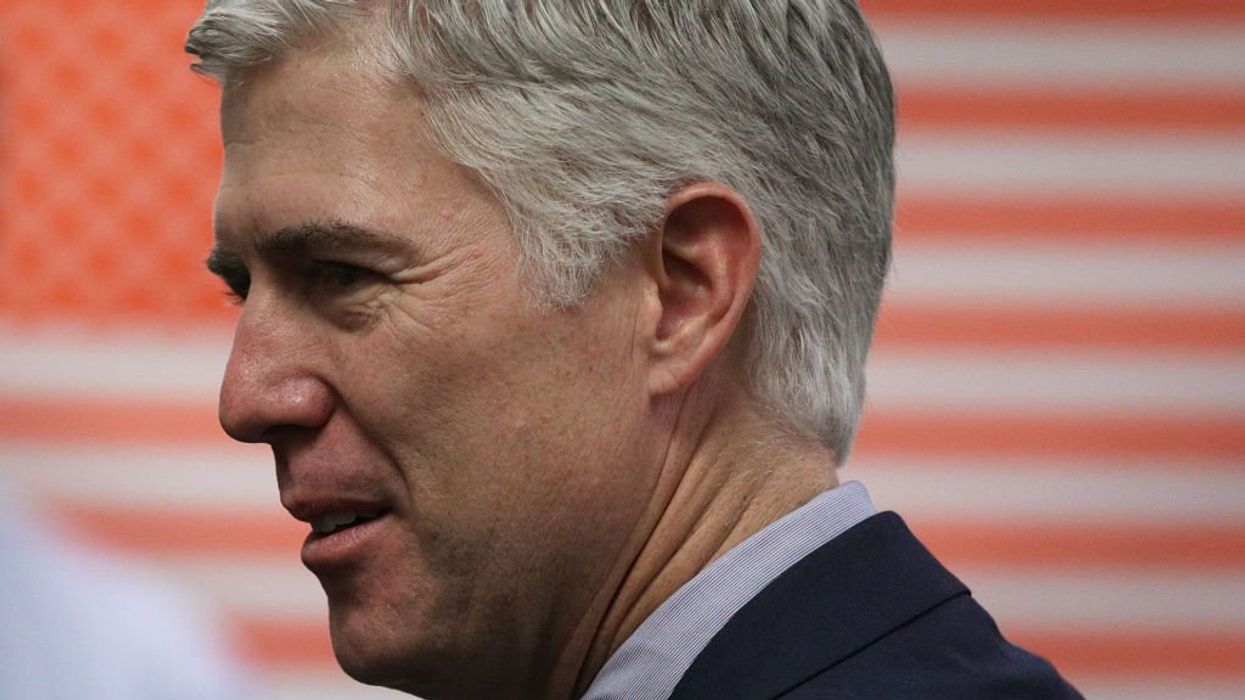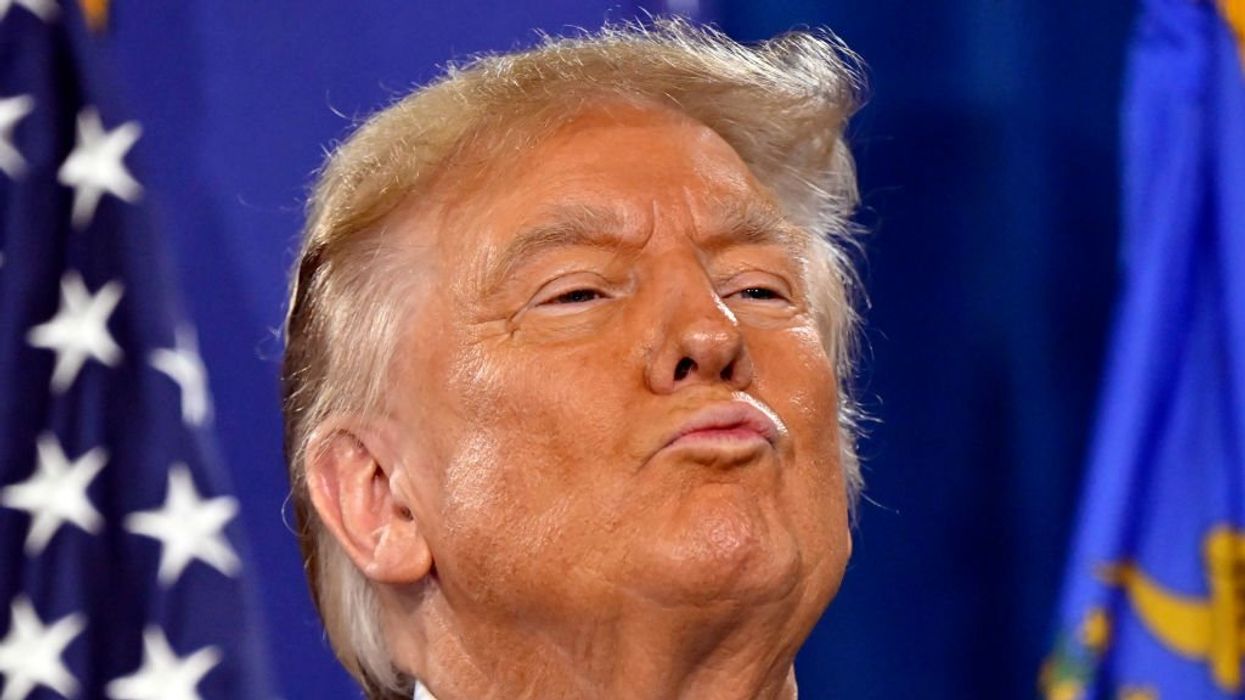
© 2024 Blaze Media LLC. All rights reserved.
Trump admin announces compromise on ethanol after lack of government-mandated demand hurts industry
October 04, 2019
After a drop in government mandates led to a lag in market demand for corn and corn-based car fuel, the Trump administration announced a deal Friday to prop the industry back up.
An EPA news release sent out Friday stated that the administration has worked out an arrangement regarding the Renewable Fuel Standard — also called the ethanol mandate — meant to help support plant-based fuel production.
EPA administrator Andrew Wheeler called the announced arrangement "the latest in a series of steps we have taken to expand domestic energy production and improve the RFS program that will result in sustained biofuel production to help American farmers."
Under the new agreement, the release explained, the EPA and Department of Agriculture will take multiple actions. The EPA will take steps to "ensure that more than 15 billion gallons of conventional ethanol be blended into the nation's fuel supply beginning in 2020," along with starting the regulatory process to streamline the sale of E15 fuel year-round. Meanwhile, the USDA "will seek opportunities through the budget process to consider infrastructure projects to facilitate higher biofuel blends."
Agriculture Secretary Sonny Perdue hailed the announcement as a win for farmers and rural Americans.
"The President recognizes that American farmers are the most productive in the world, and he has found a way to pursue policy that promotes economic growth and supports our producers," Perdue stated.
The news comes after complaints that EPA-issued ethanol mandate waivers to small fuel refineries had created a drop in market demand for corn and biofuel, which in turn led to stalled production at multiple biofuel plants. Last week, biodiesel company W2 Fuel announced on Tuesday that it will be closing down its 10-million gallon plant in Crawfordsville, Iowa — as well as a plant in Michigan — and laying off 50 total workers, the Des Moines Register reported. Prior to that, Siouxland Energy's board of directors "decided to halt production" at the cooperative's plant in Sioux Center, Iowa and Plymouth Energy in Merrill, Iowa, halted production as well.
The ethanol mandate was passed during the George W. Bush administration with the stated goal of reducing emissions and reducing American dependence on foreign energy sources. Critics of the ethanol mandate say that it's not only unnecessary given current American energy production, but that it also increases engine corrosion and distorts the price of beef due to the increased scarcity of cattle feed.
Nevertheless, the fuel mandate is big business in states that produce a lot of corn or biofuel and therefore enjoys a lot of political support in those states. One of the most vocal critics of the EPA waivers in Congress was Sen. Chuck Grassley, R-Iowa.
"They screwed us," the senator told a local television station of the waiver situation in August.
On Friday, Grassley announced his satisfaction with the new mandate deal.
"President Trump listened to the concerns of farmers and biofuels producers and delivered on their behalf," Grassley said in a statement. "President Trump has made clear that he is an ally of corn and soybean farmers as well as ethanol and biodiesel producers."
Grassley's statement also said that small refineries can still apply for waivers under the agreement "while biofuels are able to blend the legally-required amount."
"The [ethanol mandate] is essential to the livelihoods of folks across our state, which is why I've been fighting tirelessly on behalf of Iowa's farmers and producers every step of the way and making Iowans' voices heard throughout this process," Grassley's junior counterpart, Sen. Joni Ernst, R-Iowa, said.
In contrast, Sen. Ted Cruz, R-Texas, said the move was a loss for small refineries and refinery workers due to the regulatory burden it would mean for fuel production.
“I am disappointed that the administration intends to roll back the regulatory relief President Trump recently provided to our nation’s independent refineries," Cruz said in a statement. "Now is not the time to increase regulatory costs and endanger U.S. jobs. Instead, we should be strengthening our economy and working together to implement win-win solutions that benefit both our hardworking corn farmers and refinery workers."
The entire saga, however, raises a critical question about ethanol-blended car fuel: Without the support of government regulations, could the ethanol industry even survive in the free market?
#mc_embed_signup{background:#fff; clear:left; font:14px}
/* Add your own MailChimp form style overrides in your site stylesheet or in this style block.
We recommend moving this block and the preceding CSS link to the HEAD of your HTML file. */
Want to leave a tip?
We answer to you. Help keep our content free of advertisers and big tech censorship by leaving a tip today.
Want to join the conversation?
Already a subscriber?
Nate Madden
Nate is a former Congressional Correspondent at Blaze Media. Follow him on Twitter @NateOnTheHill.
more stories
Sign up for the Blaze newsletter
By signing up, you agree to our Privacy Policy and Terms of Use, and agree to receive content that may sometimes include advertisements. You may opt out at any time.
© 2024 Blaze Media LLC. All rights reserved.
Get the stories that matter most delivered directly to your inbox.
By signing up, you agree to our Privacy Policy and Terms of Use, and agree to receive content that may sometimes include advertisements. You may opt out at any time.



